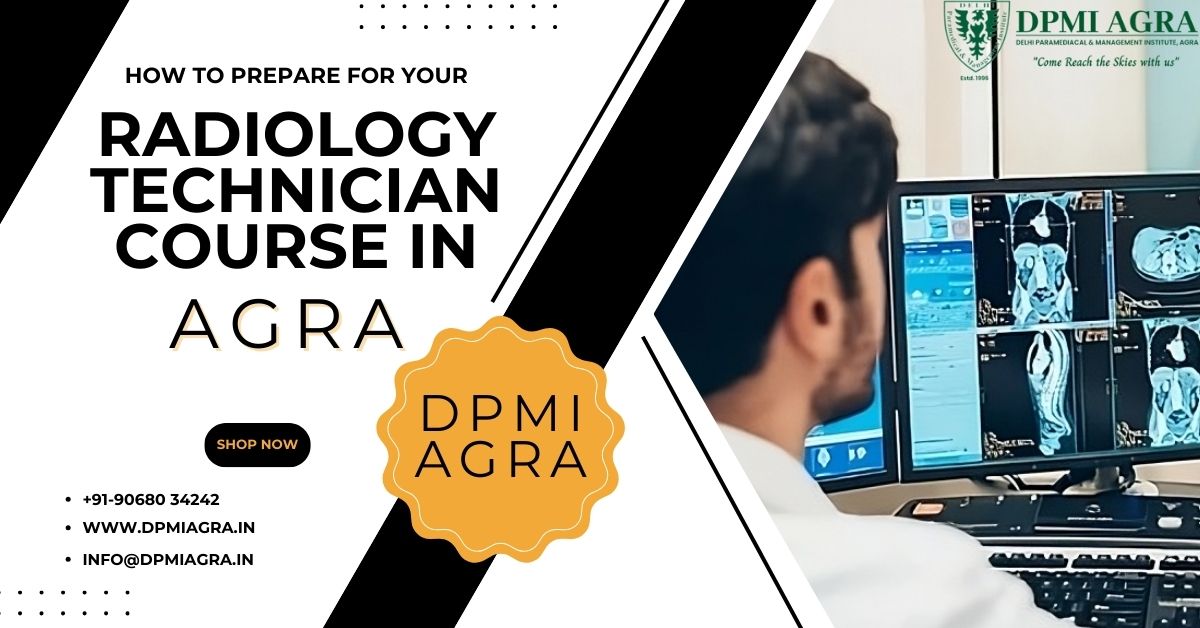Which Paramedical Course is Right for You? (Take This Quiz & Find Out)
Choosing the right career can feel like finding a needle in a haystack — especially when it comes to the vast field of healthcare. If you’ve decided to explore the world of paramedical sciences but can’t figure out which course suits you best, you’re not alone.
In this guide, we’ll help you understand:
- How to choose the right paramedical course.
- What each course prepares you for.
- And a quick quiz at the end to point you in the right direction!
So, take a deep breath — you’re about to make a choice that could shape your future.
Why Choosing the Right Paramedical Course Matters?
The paramedical field is full of opportunities but not every course is the right fit for everyone.
Some courses demand excellent communication, others need technical precision or even a strong stomach for blood and emergencies. Making the wrong choice can lead to frustration and wasted time.
So, ask yourself:
- What are my strengths?
- Do I enjoy working with machines? Or directly with patients?
- Do I want a fast-paced job? Or a more behind-the-scenes role?
Popular Paramedical Courses You Can Choose From
Here’s a quick overview of the most sought-after paramedical programs and what kind of person they suit best.
Diploma in Medical Laboratory Technology (DMLT)
- Best for: Students who love working with machines, microscopes & samples.
- Role: Conducting medical tests & reporting results.
- Direct patient contact: Minimal.
Diploma in Operation Theatre Technology (DOTT)
- Best for: Calm, focused individuals who can handle emergencies & assist surgeons.
- Role: Prepping & assisting during surgeries.
- Direct patient contact: Medium.
Diploma in X-Ray & Imaging Technology
- Best for: Tech-savvy students with interest in imaging machines.
- Role: Operating X-Ray, CT, MRI scanners.
- Direct patient contact: Medium.
Diploma in Dialysis Technician
- Best for: Compassionate students who want to work directly with chronic patients.
- Role: Operating dialysis machines & monitoring patients.
- Direct patient contact: High.
Diploma in Emergency & Trauma Care
- Best for: Those who can stay calm under pressure & love fast-paced environments.
- Role: Providing immediate care in emergency rooms.
- Direct patient contact: Very High.
How to Decide Which Course is Right For You
Here are some factors you should consider:
- Your interest & passion.
- Your personality type (introvert, extrovert, calm under pressure?).
- Future growth opportunities.
- Salary expectations.
- Whether you want to work in hospitals, labs, or field settings.
Take This Interactive Quiz!
Why Choose DPMI Agra for Your Paramedical Journey?
At DPMI Agra, we’ve been guiding students toward successful healthcare careers for over years.
- Industry-approved courses.
- Expert faculty.
- 100% placement assistance.
- State-of-the-art labs & training facilities.
So once you’ve figured out the right course, we’re here to help you achieve your dream career!
Ready to Begin?
Contact us today at:- +91-90680 34242, +91-90688 1177
Email:- info@dpmiagra.in
Conclusion
Choosing the right paramedical course doesn’t have to feel overwhelming. With a little self-awareness about your interests, strengths, and career goals and guidance from experts you can pick a path that’s both fulfilling and rewarding. Use the quiz above as your starting point and see where your instincts take you. At DPMI Agra, we’re here to help you every step of the way from counseling to training to placements. Ready to take the leap? Call us or visit our campus today and begin your journey into the noble field of healthcare!
**Your future patients are waiting for you.**
FAQs
Q. Which paramedical course has the highest salary?
Ans: Courses like Diploma in Radiology & Imaging Technology and Emergency & Trauma Care often offer higher salaries due to the critical nature of the roles and demand in hospitals.
Q. Can commerce or arts students join paramedical courses?
Ans: Yes! While most courses prefer science background, some diploma programs are open to students from commerce or arts streams. Check specific eligibility with the institute.
Q. Which paramedical course is best for girls?
Ans: There is no “best” based on gender — all courses are suitable. However, many girls opt for DMLT, Dialysis Technology, or OT Technology based on their personal preferences and comfort.
Q. How long does it take to complete a paramedical course?
Ans: Most diploma courses take 1–2 years to complete, depending on the specialization and institute.
Q. Does DPMI Agra offer placement assistance after the course?
Ans: Yes, DPMI Agra provides 100% placement assistance to its students, thanks to its strong tie-ups with leading hospitals and healthcare facilities.











